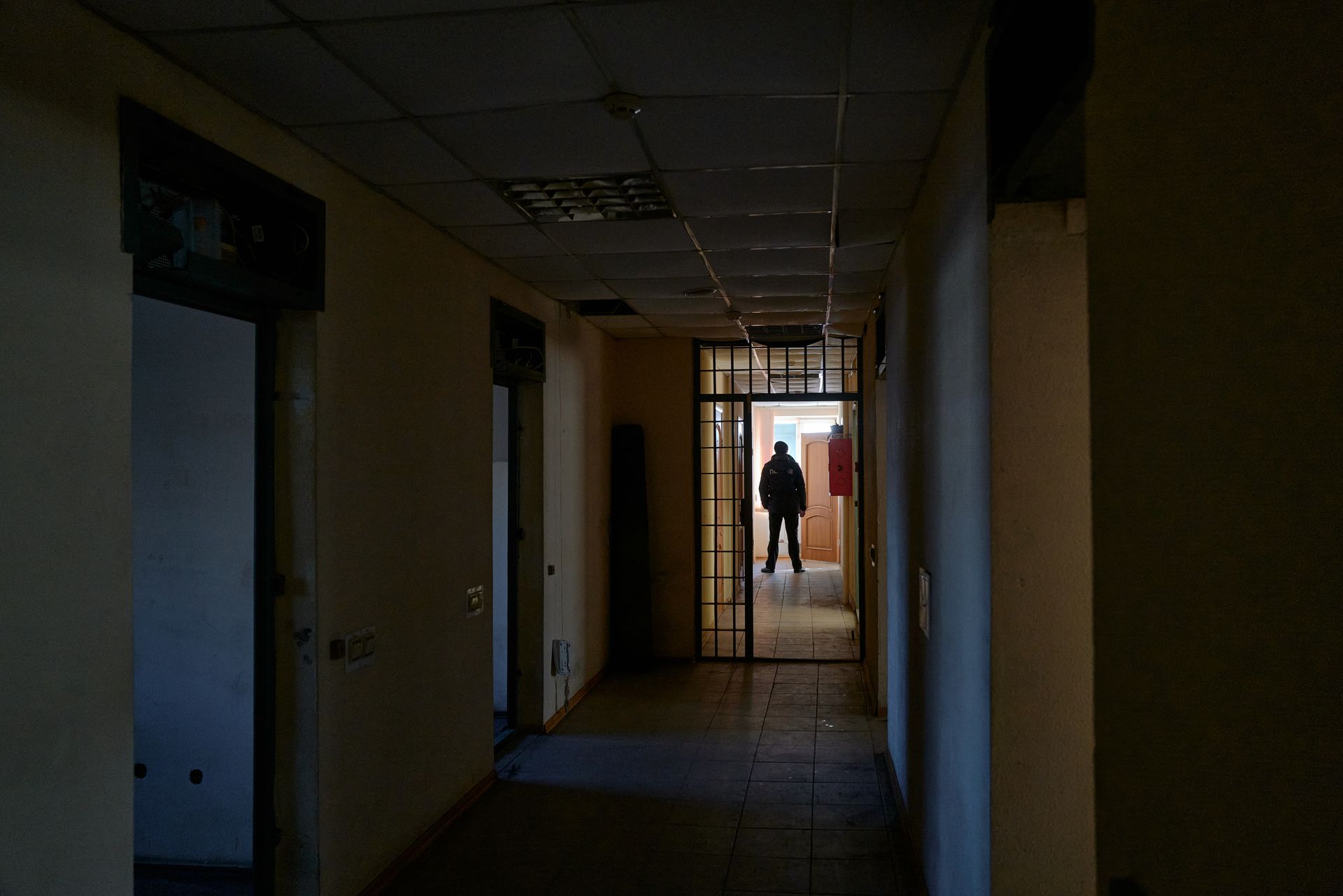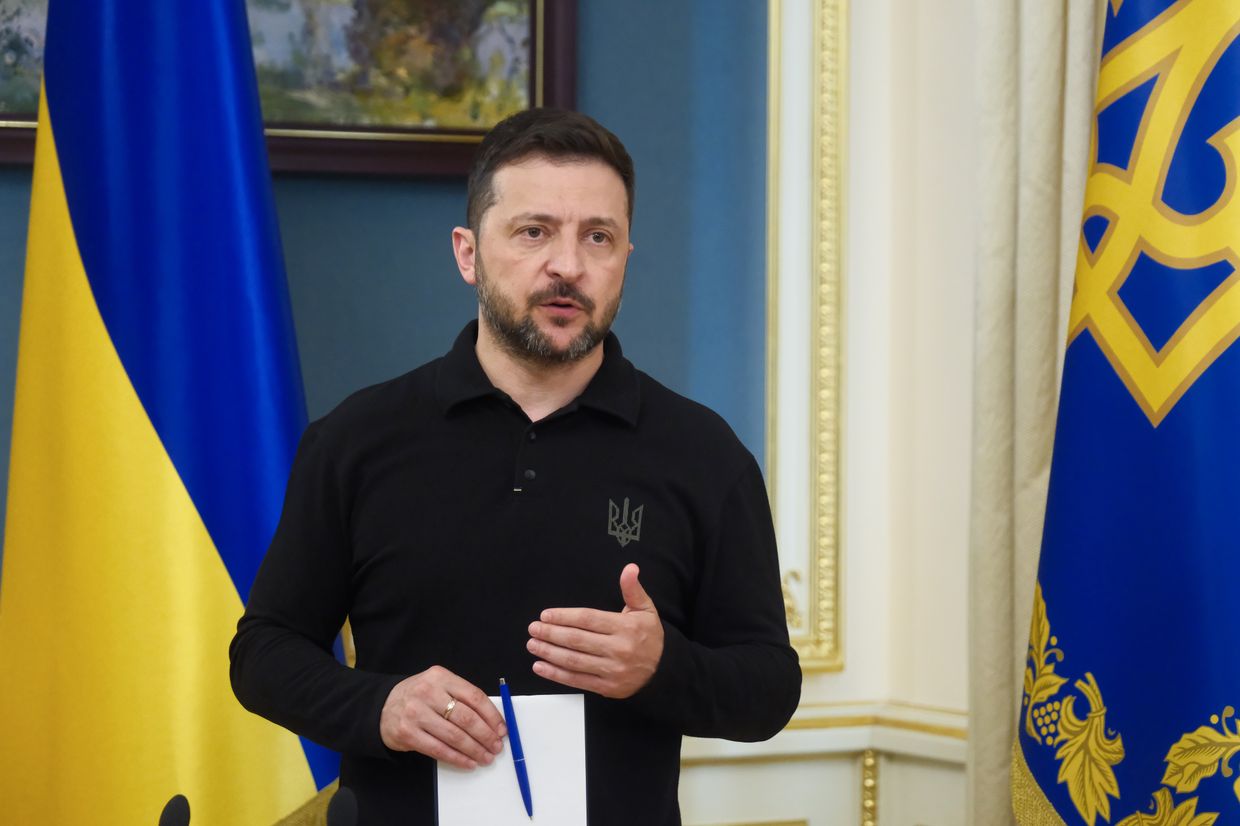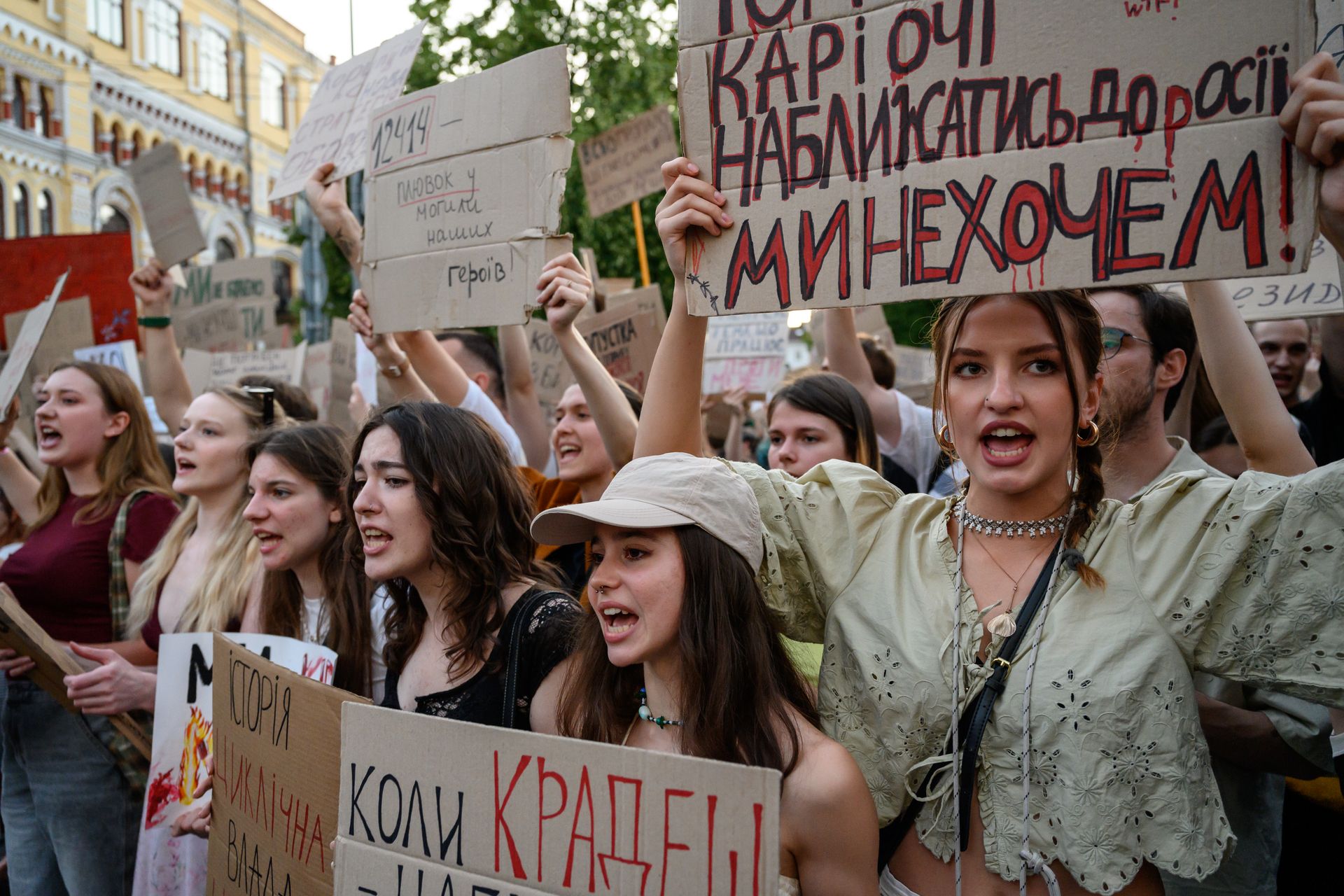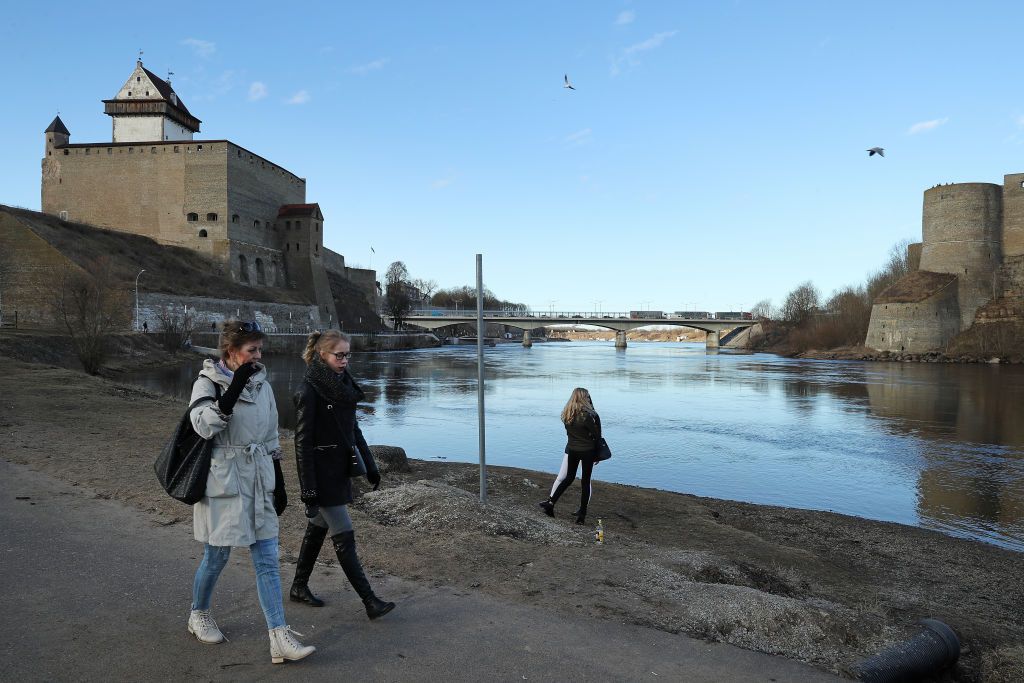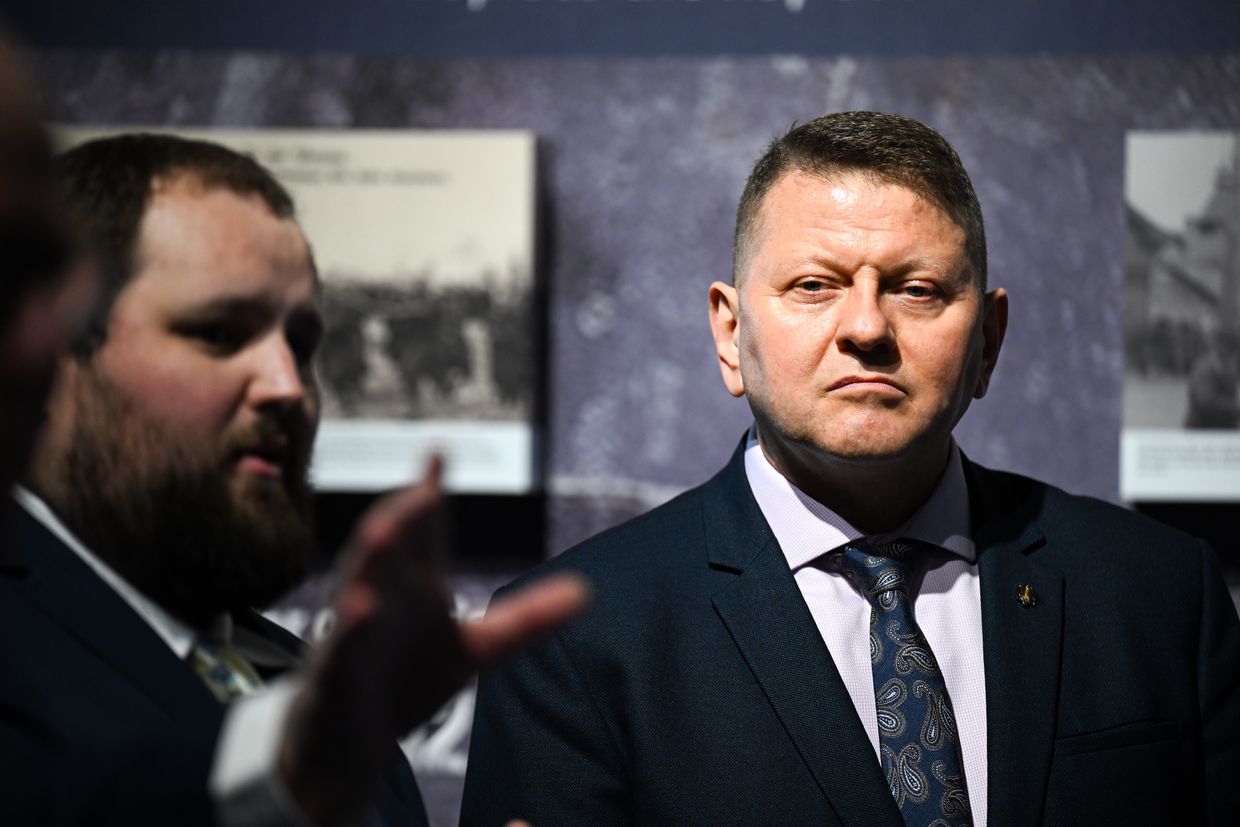Ukraine war latest: China covertly supplying drone engines to Russia despite sanctions, Reuters reports

Key developments on July 24:
- China covertly supplying drone engines to Russia despite sanctions, Reuters reports
- Von der Leyen urges China to press Putin to engage seriously in Ukraine-Russia peace talks
- Trump announces US-EU arms agreement including aid for Ukraine
- Russian glide bombs strike Kharkiv residential high-rise building, injuring at least 41
- 1 killed, 1 injured as Ukrainian drones attack Russia’s Krasnodar Krai, hit Sochi, oil depot
- Indian company sent explosives to Russia despite US warnings, Reuters reports
Beijing is reportedly circumventing Western sanctions by discreetly shipping Chinese-made drone engines to a state-owned Russian manufacturer, labeling them as "industrial refrigeration units" to avoid detection.
This alleged practice has enabled Russia to significantly ramp up its production of Garpiya-A1 attack drones, according to three European security officials and documents reviewed by Reuters.
The shipments have allowed Russian weapons-maker IEMZ Kupol to boost its Garpiya drone output, despite sanctions imposed by the U.S. and EU in October aimed at disrupting its supply chain. The information comes from the security officials and a trove of documents including contracts, invoices, and customs paperwork.
An internal Kupol document, seen by Reuters, indicates the company signed a contract with the Russian defense ministry to produce over 6,000 Garpiya drones this year, a sharp increase from 2,000 in 2024. The document also noted that more than 1,500 drones had already been delivered by April.
The Garpiya, a long-range drone, is used to strike civilian and military targets deep within Ukrainian territory, with approximately 500 units deployed by Russia each month, according to a statement from the Ukrainian military intelligence agency to Reuters.
The European security officials requested anonymity due to the sensitive nature of the information and asked that certain specific details from the documents, such as dates and contract costs, be withheld.
In September, Reuters reported that Kupol was manufacturing the Garpiya using Chinese technology, including L550E engines produced by Xiamen Limbach Aviation Engine Co. One month after that report, both the European Union and the U.S. sanctioned several companies involved in the drone's production, including Xiamen.
Following these sanctions, a new Chinese firm, Beijing Xichao International Technology and Trade, has reportedly taken over the supply of L550E engines to Kupol. This is evidenced by invoices, an internal Kupol letter, and transportation documents reviewed by Reuters.
In a statement to Reuters, China's foreign ministry said it was unaware of the export of parts for the Garpiya and maintained that it controls foreign sales of dual-use goods in accordance with Chinese law and international obligations.
"China has always opposed unilateral sanctions that lack basis in international law and are not authorized by the U.N. Security Council," the statement read.
Both the U.S. and EU have consistently imposed sanctions on companies in third-party countries, including China, accused of providing dual-use technology to Russia. Kupol itself has been under EU sanctions since December 2022 and U.S. sanctions since December 2023 for its involvement in Russia's defense sector.
The Garpiya drone, which means "harpy" in Russian, is reportedly based on Iranian-made Shahed drones but incorporates Chinese technology, according to the three European sources. The Ukrainian military intelligence agency confirmed that the Chinese-made components in the drone include the engine, control systems, and navigation equipment.
Further documentation reviewed by Reuters shows that the engines were shipped by Xichao to a Russian front company identified as SMP-138, which then forwarded them to another Russian firm, LIBSS.
A contract for LIBSS to supply Kupol with the engines explicitly said that they would be described as "cooling units" in shipping documents due to their sensitive nature, according to Reuters. The specified delivery route for these components was from Beijing to Moscow, and then on to Izhevsk, where Kupol operates its manufacturing facilities.
According to the three security officials, this "cooling units" description enabled the goods to be exported to Russia without alerting Chinese authorities.
Von der Leyen urges China to press Putin to engage seriously in Ukraine-Russia peace talks
European Commission President Ursula von der Leyen on July 24 urged China to leverage its close ties with Russian President Vladimir Putin to help advance peace talks with Ukraine.
"China has an influence on Russia, like the European Union has an influence on Ukraine," von der Leyen said after a summit with Chinese leader Xi Jinping. "It is our expectation that China uses this influence to make sure that Russia is coming seriously to the negotiation table."
Her remarks came a day after Ukrainian and Russian delegations held a third round of talks in Istanbul. The meeting lasted less than an hour and ended without a ceasefire agreement.
Russia's offer included temporary 24–48-hour ceasefires to recover bodies and the wounded, but it again rejected a complete ceasefire.
At the talks, Kyiv proposed a summit between President Volodymyr Zelensky and Putin before the end of August, a proposal the Kremlin has not yet accepted. The Ukrainian president has consistently signaled openness to direct talks, while Putin has so far refused.
Von der Leyen stressed that the EU doesn't need to pressure Ukraine, as she mentioned the country is already showing a willingness to negotiate.
"We in the European Union don't even have to use our influence, because President Zelensky has already offered and is at the negotiation table," she said. "But it is important that we have a ceasefire and that the (leaders') negotiations at the table take place."
Despite repeated calls from Ukraine and the West, Beijing has maintained its support for Moscow. China remains Russia's top crude oil importer and a major supplier of dual-use components used in its defense sector.
U.S. officials have echoed von der Leyen's remarks. U.S. Ambassador to NATO Matthew Whitaker warned on July 22 that China may face consequences if Moscow rejects a peace deal.
"They need to be called out for subsidizing this killing," he told Fox Business.
U.S. President Donald Trump announced on July 14 that Russia would face "severe" secondary tariffs unless it agrees to end the war within 50 days. The strategy aims to cut off Russia's oil revenue, which accounts for about one-third of its federal budget.
If a third country like China keeps buying Russian oil, exports to the U.S. could face a further 100% tariff, significantly raising prices for American consumers and squeezing Chinese exporters.
Earlier this month, the South China Morning Post reported that Chinese Foreign Minister Wang Yi told EU foreign policy chief Kaja Kallas that Beijing cannot afford for Russia to lose the war, citing unnamed diplomatic sources.
Putin is expected to visit China in September for the Shanghai Cooperation Organization summit, where he will meet Xi Jinping.
Trump announces US-EU arms agreement including aid for Ukraine
The U.S. and EU have signed an agreement for Brussels to fully fund the purchase of U.S. weapons, some of which will be sent to Ukraine, U.S. President Donald Trump announced on July 23 at the AI summit in Washington.
Since the start of Trump's second term, Washington had not provided Kyiv with new military aid packages until July. The administration eventually approved arms sales to Ukraine, announcing the first potential delivery on July 23.
The deal stipulates that the U.S. will deliver weapons to the EU, which will handle distribution among member states, with most of the arms expected to go to Ukraine, according to Trump.
Trump added that the EU will spend money in the U.S. on its defense companies, which "should have been done three years ago."
The U.S. approved two military aid packages for Ukraine on July 23, totaling $322 million. One includes HAWK Phase III air defense systems, while the other supplies parts to repair Bradley infantry fighting vehicles.
The State Department confirmed the sale would have no negative impact on U.S. defense readiness.
Previously, the U.S. and Germany also agreed to deliver five Patriot air defense systems to Ukraine, as Russia has escalated its long-range strikes on Ukrainian cities.
The new commitment follows U.S. President Donald Trump's July 14 announcement of a NATO- and EU-backed initiative under which alliance members will purchase U.S.-made weapons for Ukraine.
Washington has already sent three Patriot batteries to Ukraine, with Germany providing three more. An additional battery has come from a European coalition, though not all of the systems are currently operational due to routine maintenance rotations.
Russian glide bombs strike Kharkiv residential high-rise building, injuring at least 41
Russian forces attacked the city of Kharkiv on July 24, injuring at least 41 people, including six children, the regional prosecutor's office reported.
Among the victims of the attack is a one-month-old infant who suffered an acute stress reaction.
Six people, including two children, remain hospitalized following the attack. A 17-year-old boy and a one-year-old girl are in moderate condition, while one woman is reported to be in serious condition, according to Governor Oleh Syniehubov.
Two Russian glide bombs struck the Shevchenkivskyi district at around 11:30 a.m. local time, targeting a high-rise residential building and civilian enterprise.
Some people were trapped beneath the rubble of the multi-story building following the attack, while a separate hit on an industrial facility sparked a fire.
Emergency crews, including medical personnel, rescuers, and police, are working at the scene of the attacks.
"These are completely senseless strikes, with no military objective. It's clear that Russia's only goal is to continue its aggression and killing," President Volodymyr Zelensky said.
"That is why we need support for our defense — robust air defense systems and expanded weapons production. All of this is essential to saving lives," Zelensky added.
In recent months, Moscow has been intensifying attacks against Kharkiv – Ukraine's second-largest city – which sits just over 20 kilometers (15 miles) from the Russian border, as well as against smaller settlements in the Kharkiv Oblast.
On July 18, Russian forces targeted a residential area in the town of Chuhuiv, injuring four people and damaging their homes.
One killed, 1 injured as Ukrainian drones attack Russia’s Krasnodar Krai, hit Sochi, oil depot
One person was killed and one injured as an oil depot in Russia's Krasnodar Krai was hit in a reported Ukrainian drone attack on July 24, with explosions and drones seen in the city of Sochi.
"There was a hit on the oil depot on Tavricheskaya Street. Please refrain from driving or walking in that area. I will report on important incidents," head of the Sirius Federal Territory in Krasnodar Krai, Dmitri Plishkin said in a post to Telegram.
The strikes in the federal territory began at approximately 1 a.m. local time and ended at 3 a.m.
Utility and emergency services are responding to the aftermath of the attack on the Russian oil refinery, Plishkin said.
Meanwhile, in Sochi, independent Russian media is reporting explosions are rocking the city, with local officials saying one person has been killed and one injured.
Temporary flight restrictions were imposed at Sochi airport amid the drone attack, a spokesperson for Russia's state aviation agency Rosaviatsia said on July 23.
The Ukrainian army has not commented on the claims, which could not be independently verified.
Krasnodar Krai is located in southwestern Russia along the Azov and Black seas to the west.
Kyiv regularly strikes military targets in Russia as it aims to reduce Moscow's fighting power in its war against Ukraine.
On July 22, Ukrainian drones reportedly struck the city of Novocherkassk in Russia's Rostov Oblast, while a Ukrainian official said that a railway hub used by the Russian army was targeted.
Amid reported Ukrainian drone attacks on Russia, a fire broke out at a train station in the village of Kamenolomni in Rostov Oblast overnight on July 21.
Indian company sent explosives to Russia despite US warnings, Reuters reports
An Indian company delivered $1.4 million worth of military explosives to Russia last December, ignoring U.S. warnings on potential sanctions, Reuters reported on July 24, citing data from Indian customs.
New Delhi has maintained a neutral stance on the Russia-Ukraine war, calling for a peaceful solution while fostering an economic relationship with Moscow.
Among the Russian companies listed as recipients of the explosive substance octogen, also known as HMX, is Promsintez, an explosives producer that has ties to the Russian military, a Ukrainian Security Service official told Reuters.
According to the Pentagon's Defense Technical Information Center and related defense research programs, octogen is commonly used in missile and torpedo warheads, rocket engines, explosive shells, and plastic explosives for advanced military systems.
The U.S. government has labeled the substance "critical for Russia's military efforts" and has warned financial institutions against enabling its sales to Moscow.
India has resisted U.S. pressure to distance itself from Moscow, preserving its decades-old defense and economic relationship. Its crude oil purchases from Russia have held firm, despite Western efforts to isolate the Kremlin through sweeping sanctions.
Earlier, U.S. President Donald Trump threatened to impose a 100% tariff on countries that continued purchasing Russian crude oil.
Meanwhile, the U.S. Treasury Department has the authority to sanction entities involved in the sale of octogen and similar materials to Russia, three sanctions lawyers confirmed to the news agency.
However, Reuters has found no indication that the shipments of octogen violated Indian government policy. An Indian official familiar with the matter told the news agency that the compound, while primarily used in military applications, has some limited civilian uses as well.
India's Ministry of External Affairs said the country exports dual-use goods "into account its international obligations on non-proliferation, and based on its robust legal and regulatory framework that includes a holistic assessment of relevant criteria on such exports."
The U.S. State Department declined to comment on the specific shipments identified by Reuters but said it had repeatedly warned India that companies involved in military-related trade with Russia could face sanctions.
Note from the author:
Ukraine War Latest is put together by the Kyiv Independent news desk team, who keep you informed 24 hours a day, seven days a week. If you value our work and want to ensure we have the resources to continue, join the Kyiv Independent community.



